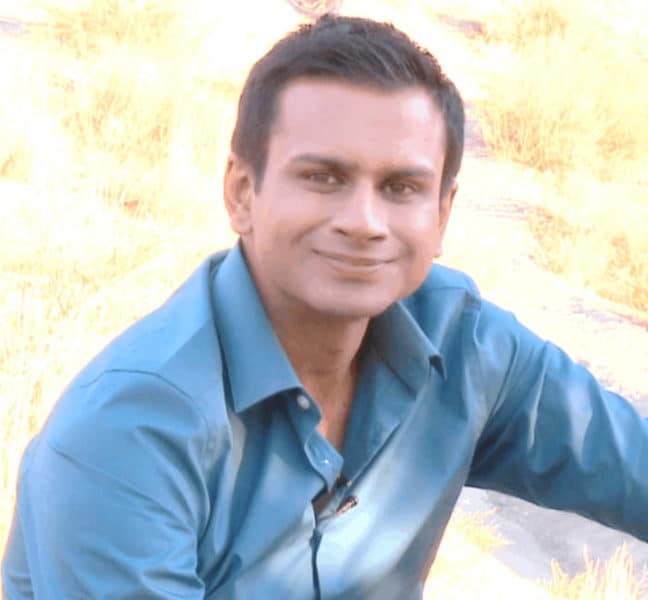Now today we’re going to be talking about accepting people during this period of time.
Now, many of you have written into our clinic saying that you’re now with people perhaps that you don’t spend a lot of time with. People have even commented that’s their own partners. They say that the average person only spends, an hour and a half or a couple of hours with their partner each day, actually actively in their presence, maybe two to two and a half hours. And yet with the coronavirus situation, we are being forced to be around people for intense and long periods of time without an exit strategy. And I know that sounds a bit cold because surely everyone loves each other. They should be fine with it. At the end of the day, we’re not used to it, and so therefore many of us are experiencing resistance to the people around us.

Many of us are experiencing some anxiety about being in that potentially difficult living situation. And I want you to know that you’re not alone if you’re finding it challenging right now, perhaps it’s being with a partner or your parents or your children.
Whichever group it is, we’re all finding that there can be certain resistances that we’re experiencing. That can be a feeling of, “Oh, I’m trapped. How am I going to get out of this situation? I wish this would all change.” And a lot of that resistance can be related to wanting the other person to change. So we’re in those situations, we think, “How could that person behave like that? Look what they’re doing. This is just typical of their behavior. I wish they would just change. Don’t they get it?” We get into that place of righteous indignation when we look at other people’s behaviors.

And it’s two plays of the ego that I’d like to share with you.
One game of the ego or play of the ego is the right or wrong. At a deep level, we all like to be right. We don’t like to be wrong. So we get into arguments and conversations about what is the right way of doing things, what is the wrong way of doing things? And it can be turned into a power battle, and you say, “Well, hang on, actually, that sounds like a courtroom or a parliament.” In fact, it’s happening in all of our own homes. We get into those intense conversations where we’re trying to be right. Get one up against the other person. And this can be with our children, our parents, our partners. The ego doesn’t care where it gets into those conversations. So one game that we can observe in ourselves is wanting to be right and wanting the other person to be wrong.

The second game of the ego, which is really at the base and at the roots of so many arguments is the blame game.
It’s their fault. It’s their fault that we got into an argument. It’s their fault that I’m feeling upset. It’s their fault. Look what they said to me. Look how they communicated. So we get into the blame game, and this is how the ego blinds us. It says, “Well, of course, it’s that person’s fault. Look how they made me feel.” These two games, needing to be right and blaming the other person, is at the root of so many of our interpersonal problems, marriage breakdown, divorce, relationship problems, right through to the communications between the age groups and the generations, parents and children, right through to the root causes of war and suffering around the world. Just those two games of the ego.

So normally we don’t make the effort to really challenge how we’re feeling, how we’re reacting for these interpersonal relationships which break down, because we’re too busy with life. We’re so absorbed in the outer world. And yet here comes along this pandemic which forces us to be at home, which forces us to self-reflect, so let’s use this opportunity to reflect on our relationships, whatever they may be, and say, “Where are those two games of the ego playing out in myself and in others, and let me observe. Let me not judge myself or others, but let me simply observe and then I can move past them.” And how do we move past these types of relationships, these resistances, these grudges?

First of all, once again, that awareness, that we want the other person to change, because we think we’re right and we think it’s the other person’s fault. And therefore when we’re stuck in those two modes, we want the other person to change. We’re not prepared to change. It’s the other person’s fault. Naturally, they need to change. And yet self-growth stops in that position of saying, “I can’t change others. What I can do is take responsibility for my reactions, my energy field.” And so often we notice when we shift our own energy field, the situation changes and other people change. We wait for other people to change, but actually it starts with us and it reminds me of a very famous saying for one of my great teachers, Sri Sri Ravi Shankar, he says, “When you’re pointing at somebody else, when you’re blaming them, you think that you’re blaming them, putting all the responsibility on them.” But just do that right now, if you’ll all just do that. There are three fingers pointing back at you. So whenever you’re blaming someone else, there are three fingers coming back at you, where the responsibility truly lies.

Now obviously if you’re in a situation where it’s abusive, where someone is deliberately bringing down your self-esteem continually and incessantly, then that’s a different situation. That is where someone else is maybe suffering from a mental health condition. It could be a range of different disorders, so it’s different when there’s an abusive situation. But in most cases we’re still blaming the other person, wanting to be right. Instead, we can focus on our own reactions and observe ourselves.

And today we’re going to do something that can help us accept other people, which is what we call the process of surrendering. Almost like a surrender meditation. And what we want to do is move from being a rigid oak tree. What happens when we were an oak tree? We’re buffeted by the wind. The oak tree has no flexibility, it can fall down. Whereas instead, we want to be a willow tree. So situations come, challenges come, whether it’s a coronavirus or it’s suddenly being cooped up in a house with lots of people or other kinds of challenges come, and a willow tree just bends with the wind and is able to maintain that flexibility and not be rigid.

So instead of being tight and tense and rigid against people around us, we take a deep breath in and we relax our bodies and we flow with the rhythms of life. We flow, like a willow tree, with the ups and downs and we just accept what is going on around us. And in that way, we cause ourselves less suffering and pain, and we also make it easier for people around us.

To learn more and experience my Acceptance of Others Around Us meditation, please watch the video below. And please share the video with others who could benefit from the knowledge.



